The Dive Bar on the Corner
The rise and fall and rise of 1020 Bar
Next time you cross Cathedral Parkway at 10 p.m. on a Thursday, pay attention to the parade of white sneakers, leather jackets, and countless shades of denim. Try to imagine the complex web of ongoing social gatherings, ranging in mood from intimate to rager, hosted by the occupants of apartments, dorms, and frat houses, and held together by the social glue of Partiful invites and hurried text messages (“Don’t forget the cheap wine and the Marlboros!”).
This frantic hopping is in our Columbia playbook—a social art form. If we’re feeling extra cool, we might have two or three stops planned in a night. And our final destination is set somewhere between the ambiguous and illusory hope of “going downtown,” and our beds.
But where do we go when all else fails? How do we properly end a night that begins with so much momentum and fades into obscurity after the fifth made-up cocktail from our CBA friend?
It seems that in the past month, the dear 1020 Bar has taken on that role of ole faithful. Smack on the corner of 110th Street and Amsterdam Avenue, 1020 has become an epicenter of Columbia’s party scene. It catches seekers and stragglers alike with its geographical advantage and alluring grunge. The constant pack of smokers on the adjacent street corner bumming off newfound friends makes the place appear from the outside livelier than it ever actually is, and it is easy to get swept up and join them. One would not be faulted for visiting 1020 and never actually making it inside.
1020 can feel like Columbia’s last real establishment, baring its hardwood teeth at the manufactured 21st century feel that most of Columbia’s surrounding bars and restaurants have adopted. 1020 purports to evoke humility and honesty with its much-needed down-to-earth experience. If all this is true, 1020 is Columbia’s perfect escape from the hyper-competitive and the fake. Past 10 p.m., the booths become coveted prizes, a sign of one’s dedication to the night; they are host to the strangest and best conversations one might have while at college—that is, if there is any recollection of them in the morning.
1020 has become the Columbia bar—a perfect antithesis to the school’s over-seriousness and a place of refuge for the romantic, the desperate, and the philosophical.
I am by no means the first to write so fondly of our campus watering hole. Recent additions to the bar’s canon of praise include Punch's 2018 article “Coming of Age at Columbia’s 1020 Bar” and of course, the 2007 Blue and White article that hangs on the wall near the bathrooms. The humorous editorial tells the story of two sophomores, who, upon being caught stealing alcohol from the backroom, were made to sand and refinish the wooden bar. I won’t go into much more detail (I suggest that everyone go to the bar and read it for themselves), but I couldn’t leave out my favorite line: “Going to 1020 is sort of like running into someone, only vaguely familiar, wearing a Columbia sweatshirt in Moscow.” What more needs to be said about the bar so eloquently described as “human” and “pervasively nostalgic”?
As many know, it hasn’t always been this way.
A year ago, the bar was on its deathbed. Crowds were meager or nonexistent, controversy loomed, and every night 1020 shut its doors, we questioned whether they would ever open up again.
Now, the bar is packed Wednesday through Saturday nights. 1020 has professional security, a freshly renovated front, and a “cocktail menu” for those who think they are too refined to order a call drink or a pint.
This reputational turnaround has confused many of us veteran 1020-goers. I am even (cautiously) starting to believe that 1020 may have pulled off an impossible comeback. But how?
I stopped by the bar during daylight hours to try to get to the bottom of it. And after three or four drinks before my Tuesday evening class, I wrangled myself away from an intoxicated 60-year-old man, who was telling me (in far too much detail) about his five plastic surgeries. Eventually, I got around to speaking with Tim Monaghan, a bartender who’s been slinging drinks at 1020 since it opened in 1995.
As an actor in New York City, Tim found his start at 1020 picking up shifts between performances. He recalled those glory days of the bar during its first few years. “Early days, 1020, it was always crowded. It was very much a Columbia bar, and those booths,” he said, gesturing dramatically toward empty ones before us, “they always used to be full.”
“We even used to do performances in there for full crowds. I've been in plays performed in there, and we used to move the couch in the back and have bands play,” Tim fondly recalled. When I asked if he thought we could have a band play there today, he told me, “You maybe could. Acoustics suck.”
When Tim’s working, the bar is his domain. It’s equal parts nostalgia and alcohol that fuel the atmosphere of pure “dive” that Tim loves about 1020. A humble institution like 1020 (as even Tim admits) is an increasingly rare find in today’s New York City. Anything with so much grit and charm is simultaneously precious and controversial, which someone like Tim knows well—despite its flaws, you’ve got to love it to death. Many of us at Columbia, myself included, share that feeling, even though we’ve only known 1020 for a fraction of the time Tim has.
Tim’s knowledge of the bar is personal. He could tell you where almost every piece of furniture, hell, even every glass, came from. The booths and tables are from a Denny’s in New Jersey, he told me, and the bar is from an old bar called The Marlin that used to be where Koronet Pizza is today.
“They just took that bar, cut it in half and in pieces, walked it around the corner and put it together again. That bar is 100 years old,” Tim said.
He told me about the artist who painted the mural on the wall and how no one ever notices that the clock in it reads 10:20 as the time. “Now the artist, he’s older, obviously, he's got a kid, you know, and he brings his kid in sometimes and he goes, ‘That's my work, that's my work!’”
He told me of the many past lives of 1020’s location, most recently as a salon (from which a painted barber’s pole is left behind above the bathrooms), and more interestingly, as a funeral home. “Not shitting you. Oh, God, you go downstairs where the embalming room was, by the tiles where they used to do—you know. There's a freezer back there. Where we keep the kegs.”
There are ghost stories, too. “I mean, yeah, I always believed in something else, the paranormal, and I've experienced things down there. And one of the other bartenders I work with, he was one day counting money and a glass just slid across the bar.”
It became clear to me that in Tim’s eyes, there was a distinction between a nostalgic 1020 of the past and the 1020 of the present. Tim could only describe the spirit of the bar in an exasperated past tense. The more he talked, the less sure I became of the comeback narrative I had been preaching.
“Whatever happened to that great, almost stereotypical, cinematic college atmosphere that we had there for so long, for so long? It was wonderful,” Tim lamented, describing what seemed like a time of equal parts debauchery and intellectualism.
“You know, I met so many intelligent people, I learned so much. I mean, I had, like, one year of college, and then I quit to move here because I wanted to be an actor, and I couldn't stand where I was back in Maine,” Tim recalled. “I used to come to the bar to be educated, because when I talked to the people here, they inspired me and taught me.”
Tim regards the loss of great “thinkers” at 1020 as perhaps the saddest consequence of the bar’s perceived decline: “I just don't know. Man, what happened to all the great discussions?”
In a way, this was a critique of the direction of modern bar culture in general, 1020 included. Tim spoke about the appeal of all the “neon signs” and “drinks with seven items” that can be found today at most bars in the city. But he placed a higher emphasis on a place being “unpretentious,” a quality that is increasingly hard to come by.
I gathered that some part of Tim’s sad nostalgia was innate: Anyone who watches a place change so much over so many years must surely feel the same. But the more we talked, the more Tim expressed that this feeling of “decline” had been greatly exacerbated by the events of recent years. When I asked what he thought issued the fatal blow to the bar’s culture, he responded promptly: “The scandal is what really brought it down. And we're just barely keeping it alive.”
The scandal in question was an exposé the Columbia Daily Spectator published in November 2021, titled “Behind the bar: The culture of sexual harassment, racism, and workplace toxicity at 1020.” My own history of visiting the establishment had begun only a few short months prior.
I was a freshman that fall, and 1020 was host to one of the first drinks of my college career—my first college bar! I can still remember stepping inside on a warm August night, and while I don’t remember much, I do remember feeling comfortable and strangely nostalgic for something I had not yet even known. With loud music, louder conversations, student bartenders, and a mass of jaded and dejected seniors huddled in the corner of a booth making fun of freshmen, it mixed the fratty, literary, and international crowds with ease.
Yet that only lasted a very short while.
That Spectator piece, one of their most discussed that year, drew from the accounts of over 20 former employees as they condemned the disturbing practices of then-manager and co-owner, Michael McKiernan, a man for whom Tim had choice words: “He was a tyrant. I don't mind saying this. He's been in and out of jail since then. I can't believe the bar is even open again, because he had such debt, really, and I shouldn't even say his last name, I could get sued.”
The effect of the Spectator article was immediate—1020 was canceled.
Many seniors will remember this fateful moment for the bar. Within weeks, the bar went from being well-loved to nearly despised.
With bad news on the block, 1020’s true colors began to show. Students simply stopped going, spare a few stubborn holdouts. The new usuals were an array of rough and rowdy locals who were best to avoid entirely. McKiernan resigned from managing the bar, but he maintained ownership. And so the bar began to spiral out of relevance.
New management came, but they would never be able to magically fix the bar’s culture overnight. “There's a lingering thing to that—Columbia kids not going in there, even though he's been gone. It's sort of uncool for a while,” Tim said.
And so, 1020 was a weird place for a couple years.
Through the spring of 2022, 1020 effectively served as a hideout for certain friend groups who relished in the intimate privacy afforded by a bar booth (still with COVID-era plastic dividers attached). Most students still avoided it like the plague. By this point, it was commonly assumed that the bar was no longer profitable and would soon go under. Most of the Columbia students working there had fled. We all thought it was only a matter of months before they closed for good.
Those days, you’d be hard pressed to find a working toilet in the building, and almost everything was covered in a thick layer of dust. But for a rowdy college student, it became a pretty fun atmosphere. It was a retreat from the chaos of Columbia’s campus to what felt like a Prohibition Era speakeasy. Some students I’ve talked to in passing this year have even told me they preferred the bar when it was canceled—it was their own escape.
During those days, some of us who still went by would debate law students about the 10th Amendment and discuss Beat Generation novels in the back booth while waiting our turn to play pool against men dressed in what looked to be traditional West African garb. One of those frat guys who had stuck around had by now become the bouncer in an effort to pick up extra cash, and, luckily for younger me, during his shifts he paid much more attention to his economics problem sets than to the quality of patrons’ IDs.
And then, one day, the bar suddenly closed.
It was a silent funeral; the most common reaction was apathy. As Tim confirmed, the bar was repossessed in August 2023: “We were closed. I never thought I was going to work there again. I was out doing other things. I thought that was history.”
But as we all know, 1020 didn’t stay closed. “And then somebody, I don’t know who, came around and bought him out, paid up the debts,” Tim recalled.
Curiously, Tim claims he doesn’t have a clue who could’ve bought it, saying that they probably want to maintain anonymity. “Honestly, I don't know who it is,” he said. He jokingly asked me on my way out, “Wait, are you one of the owners?”
So, this is where we stand today: 1020 has new mysterious owners. Any vestiges of past management, save Tim, seem to have bowed out or fled, and a new stage of life for the bar is set to begin—or is it?
Just like the school itself, the bar scene at Columbia is ever-changing along. Tim described the endless turnover of student customers of 1020 as a train. It might stop at the station for a little while, make a certain impression or unload a few things, but in the grand scheme of things, it always moves on. And as students, we are always moving on, thinking of our next stop, and hoping to enjoy ourselves somewhere in the middle.
Speaking about the ghosts in the basement, which I eagerly took as a metaphor for the spirit of the bar, Tim remarked, “Whatever that feeling was back in those days, it’s gone. Ghosts move on, or whatever they do, I don't know. But it's not cold down there when it's the middle of fucking August like it used to be. That was years ago, and the ghost has passed on.”
Whatever comes next for the bar, we can’t expect it to be exactly like it once was, either at its prime or at its lowest. But that doesn’t mean it won’t continue to serve as a beloved (or at least memorable) campus institution.
People like Tim are just happy to be a significant part of our time here. He told me that even if he’s not personally invested in the bar anymore, he genuinely still wants it to succeed. He wants students to be able to experience that which only a campus dive bar can offer, and he has hopes for how the bar will progress this year.
With a few references I didn’t quite understand and a few charismatic chuckles, Tim told me what he believes 1020 is all about.
“Don’t you want to go to an unpretentious, last of the New-York-City-corner-dive-bars, where you're just gonna meet great people and have great conversation? It's sort of like a Eugene O'Neill play and a Fellini film mixed in one. You're gonna get everyone and everything, someone from Ethiopia to Ireland, old to fake-ID-seventeen—everything. It just, as an institution, really has that unpretentiousness.”
Jackson Cheramie is a senior studying history and Classics and is a managing editor of Sundial.



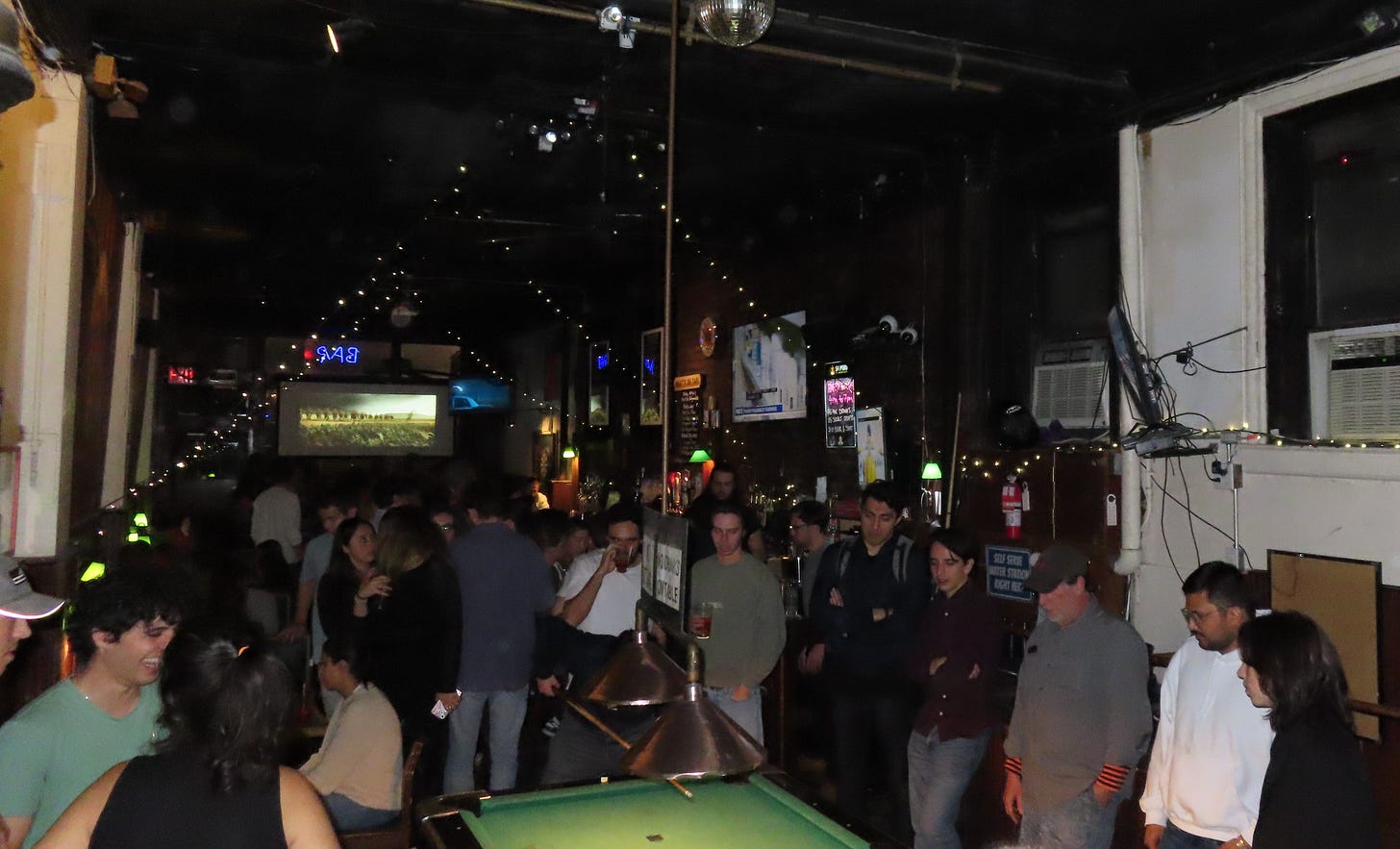
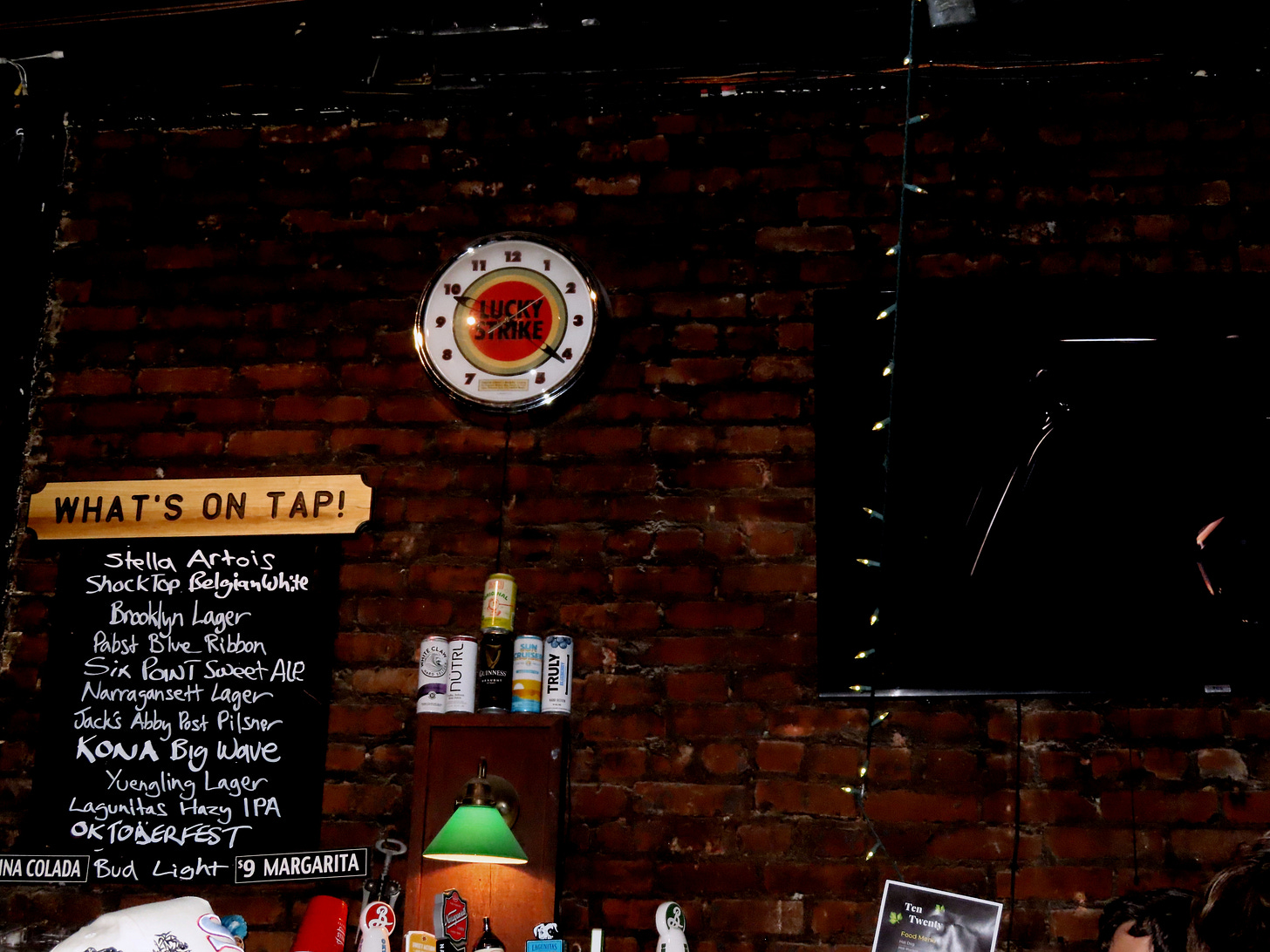
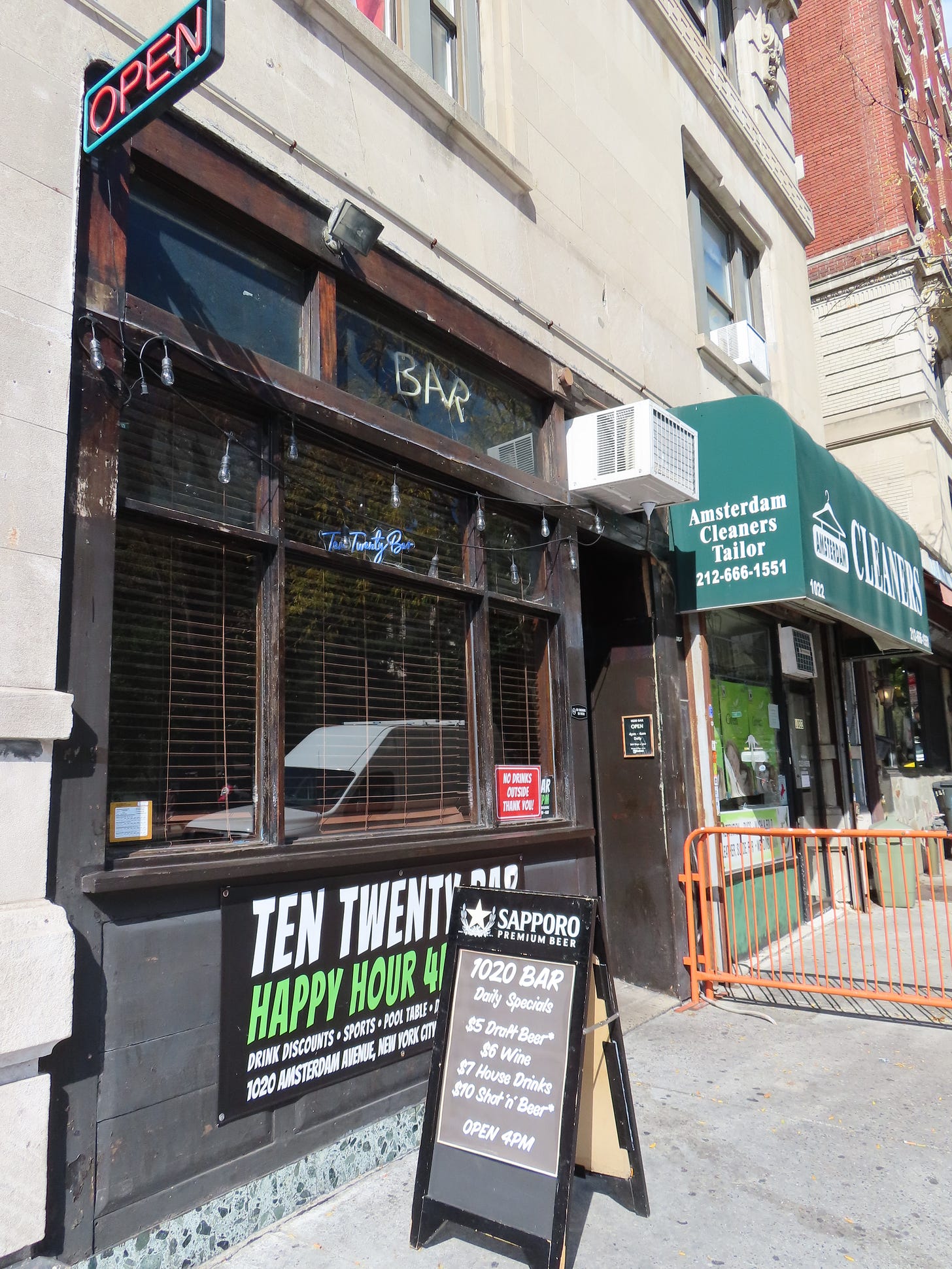
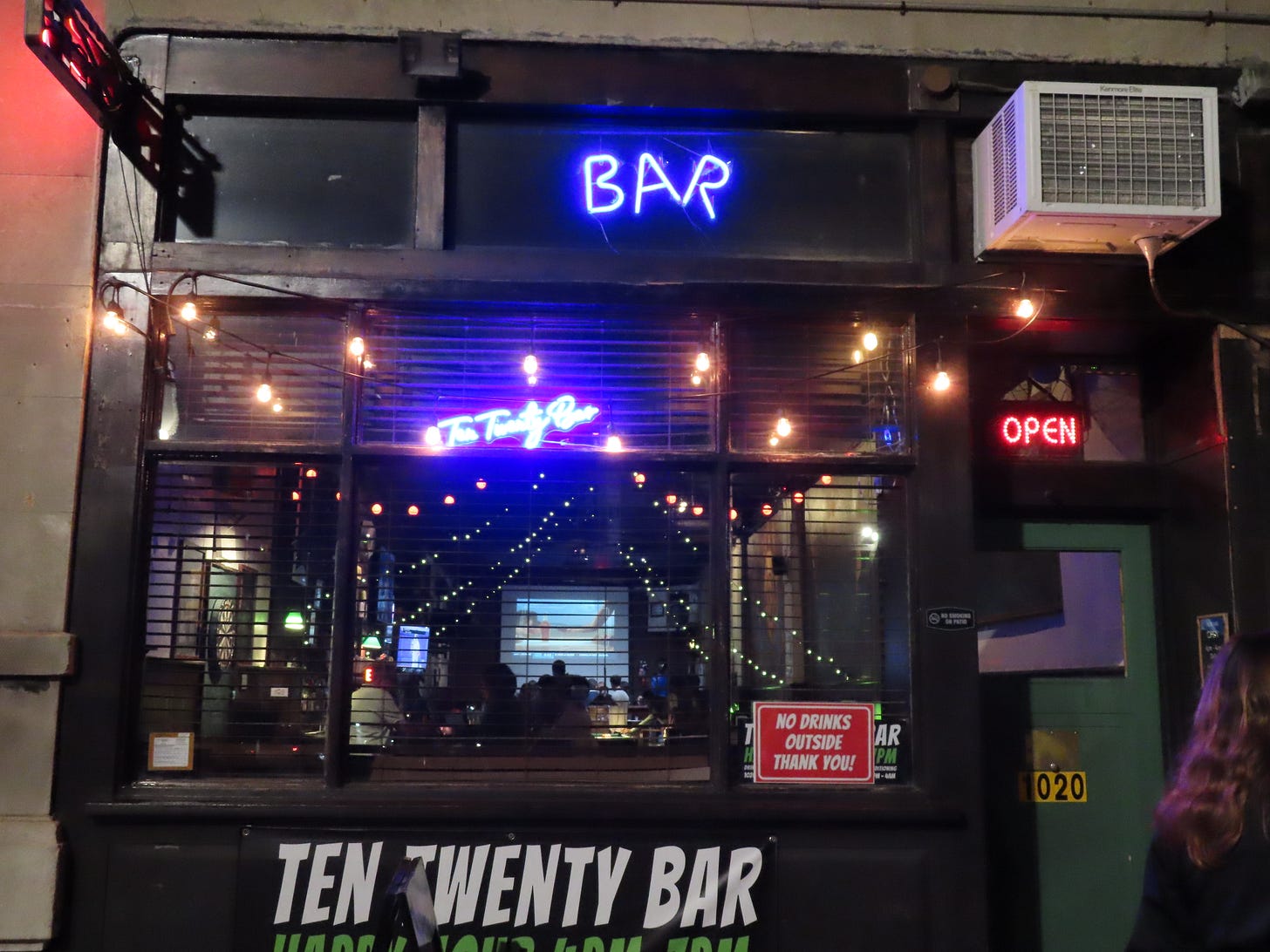
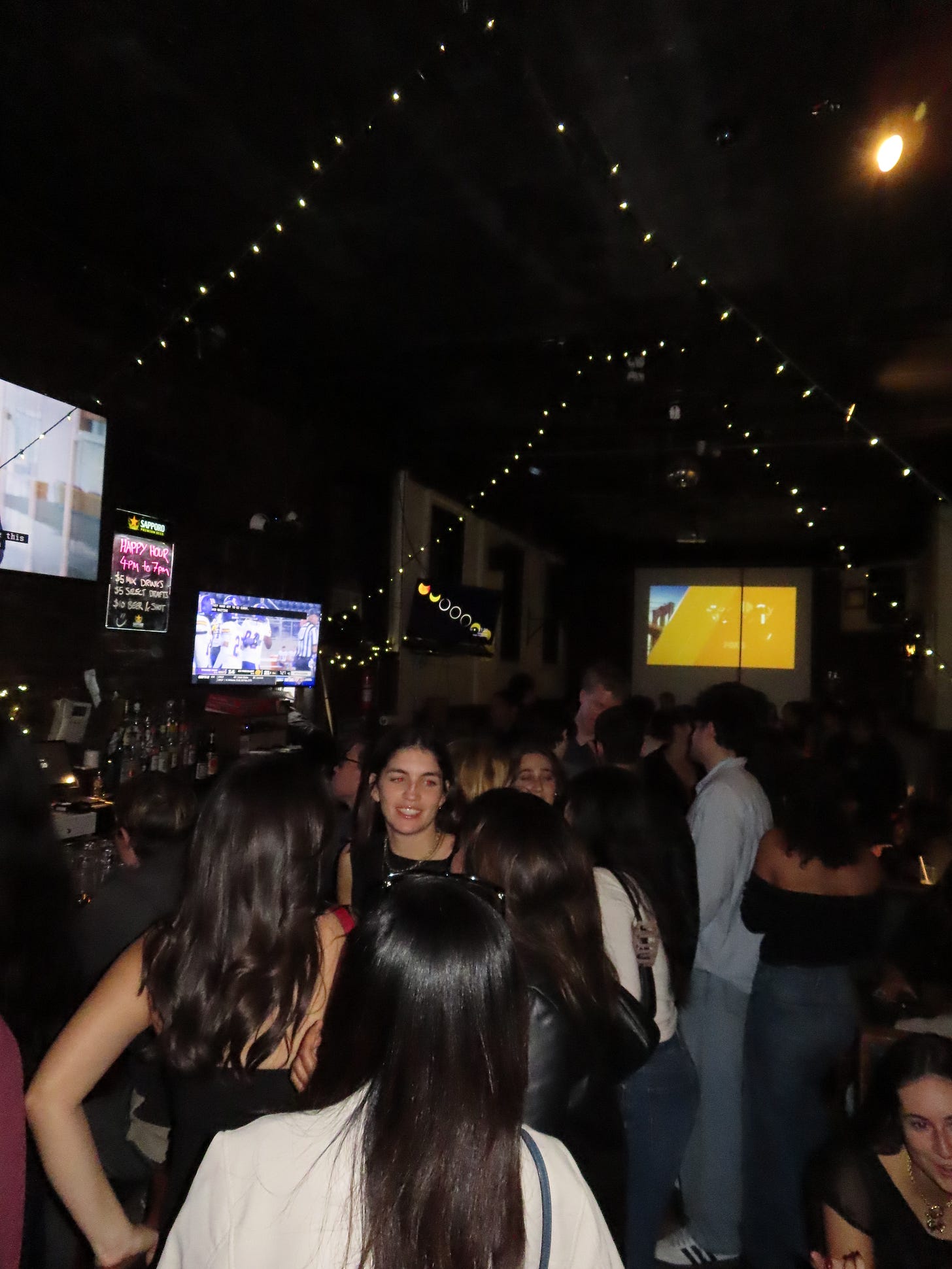
Excellent article!